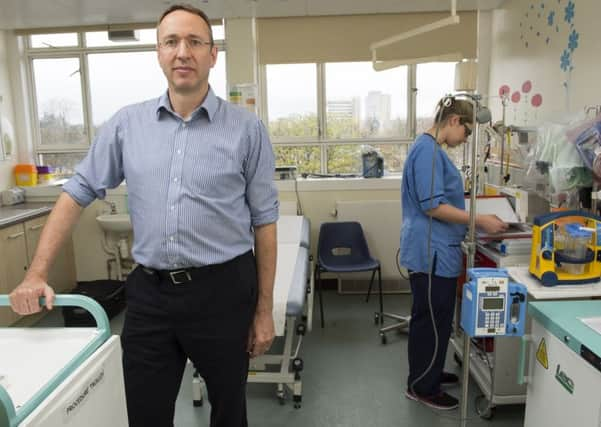Rapid rise in Scots children diagnosed with Crohn's disease


There has been a massive 750 per cent rise in the number of under-16s being diagnosed with Crohn’s disease in Scotland in the past 45 years. New research by Scottish medical researchers also shows a 33 per cent increase in the number of children developing inflammatory bowel disease (PIBD) – which includes Crohn’s and ulcerative colitis – in the past five years.
Experts warn that an increase in processed food, a lack of vitamin D and antibiotic over-prescribing could all be contributing to the rapid rise.
Advertisement
Hide AdAdvertisement
Hide AdScotland has one of the highest PIBD rates worldwide and the highest in the UK.
Crohn’s disease is an incurable illness, causing inflammation, ulcers and scarring. Main symptoms are bowel pain, diarrhoea, tiredness and weight loss, and it is often associated with other inflammatory conditions affecting the joints, skin and eyes.
Research by the University of Edinburgh has shown rates of the disease in under-16s are continuing to rise in Scotland. The study found that between 2009 and 2013, an average of 95 children in Scotland were diagnosed with IBD per year. It compares with 73 cases per year between 2003 and 2008.
“What we have shown is that it is a real rise and that it is continuous and can’t be put down to improved early diagnosis,” said Professor David Wilson, a clinician and professor of Pediatric Gastroenterology and Nutrition at the University of Edinburgh.
Professor Wilson said there could be a number of reasons for the rise in the immune-related disease, including changes to our genes.
He also explained that environmental influences could potentially trigger IBD in someone who had genetic susceptibility.
“The rise can’t just be for genetic reasons,” he explained
“We think a lack of sunshine is one of the important factors. It could be vitamin D-related. When I was growing up in the 60s we had no choice but to go outside and play. Today, children have computers and mobile phone screens, so we need to look into levels of sunshine exposure.”
“Also dietary changes could be important. We used to eat a lot more seasonal food, and now we eat more prepared supermarket food, so it could be the mechanics used in processing food, or looking at what is missing from these processed foods.
Advertisement
Hide AdAdvertisement
Hide AdHe added: “A Mediterranean diet has proven to be beneficial, so cutting down on red meat and dairy and increasing vegetable intake is a good idea.
“We also have to consider antibiotic over-prescribing and early exposure to antibiotics.”
David Barker, of the charity Crohn’s and Colitis UK, said that more research was needed into how to treat the incurable disease.
He said: “These are conditions that don’t have the awareness, no-one wants to talk about the bowels - they are almost invisible diseases.
“The reality is these are growing in incidence and people are being diagnosed at a younger age.
“More research is needed into how we can get the best treatments. Whether you are diagnosed at five or 50, you have it for life,” he added.